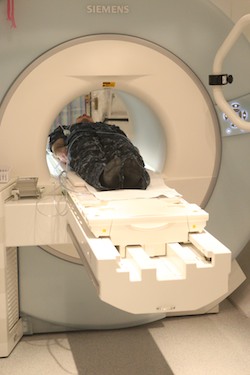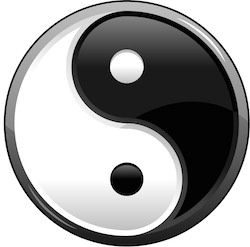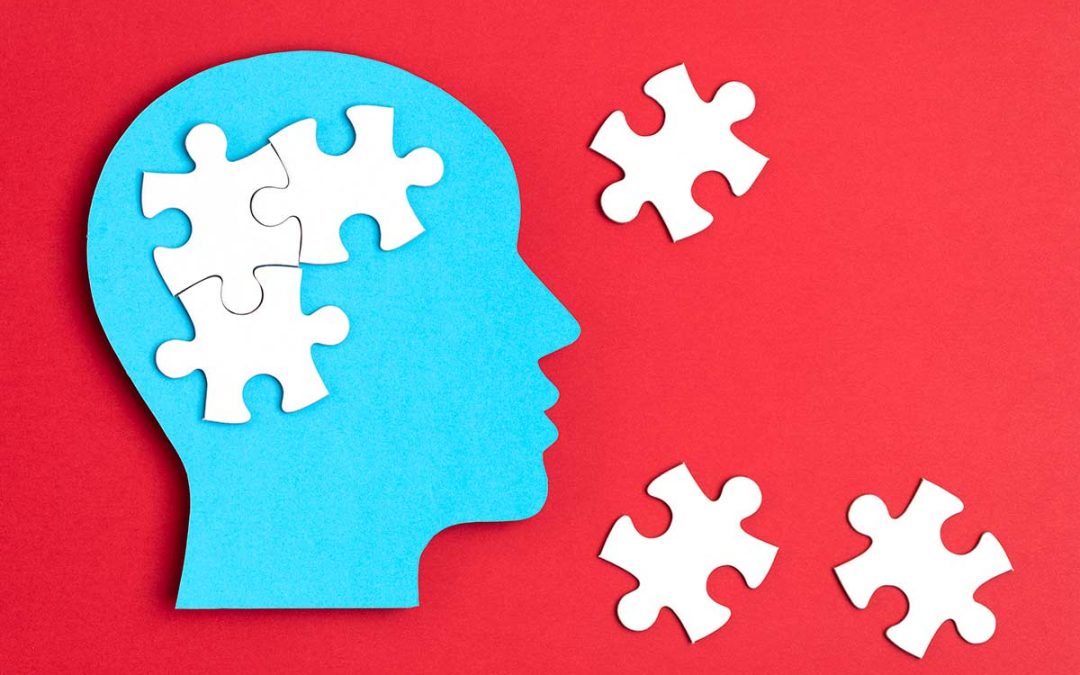MRI imaging reveals that acupuncture enhances brain activity in Alzheimer disease (AD) patients. Researchers investigated the effects of two important acupuncture points on the human brains of Alzheimer disease patients using fMRI imaging with a SIEMENS verio 3-Tesla scanner. The researchers discovered that acupuncture “can enhance the hippocampal connectivity in AD patients.”
The hippocampus is an area of the brain involved in processing emotions, memory and the autonomic nervous system. The researchers note that the MRI scans demonstrate that acupuncture “increased connectivity” in the hippocampus in patients with AD. Alzheimer’s disease damages the hippocampus resulting in memory loss, cognitive dysfunction, dementia and disorientation. The study suggests that acupuncture may provide important clinical benefits to AD patients.
The controlled clinical investigation of human subjects measured multiple regions of disrupted connectivity in AD patients. After acupuncture, MRI imaging revealed that AD patients had significant improvements in connectivity for both frontal and lateral temporal regions of the hippocampus. The researchers note, “Due to the cognitive impairment associated with AD, acupuncture on specific acupoints can modulate the cerebral blood flow and strengthen the hippocampal connectivity in AD patients.”
The Acupuncture Points
The researchers note that these findings are consistent with other MRI studies on the effects of acupuncture on brain activity. This investigation used fMRI imaging to measure the effects of acupuncture points LV3 (Taichong) and LI4 (Hegu). The investigators note that similar prior research on acupuncture point KI3 on patients with cognitive impairment also demonstrated increased connectivity. The researchers added that acupuncture has long-lasting and beneficial effects on the human brain. They note, “Our study provides new evidence that acupuncture has a striking, sustained effect on AD patients.”
The researchers used Traditional Chinese Medicine (TCM) theory based on principles written in the Huangdi Neijing (Yellow Emperor’s Inner Canon) to make the acupuncture point selection for the study. This is an interesting combination. An ancient medical text and a modern high-tech MRI investigation provide resources for the benefit of AD patients. 
The researchers used the TCM principle of applying source points for the treatment of dementia. LI4 and LV3 are both source points in the TCM system. Together, these points are combined in what is termed as the Four Gates (Si Guan), a classically used acupuncture point combination used to enhance circulation. The researchers note that, according to TCM, the Four Gates harmonize yin and yang and also regulate qi and blood. In this study, their aim was to use the acupuncture points to “improve the cognitive ability of AD patients.”
More Research
Related research reveals that acupuncture prevents brain cell loss in memory related areas of the brain and improves cognition. The researchers note that these findings indicate that acupuncture is a potential treatment for cognitive impairment disorders and Alzheimer’s disease. The laboratory findings show that acupuncture prevents neuron loss in the hippocampus.
Using the Morris water maze test, mice used who received acupuncture showed significantly less cognitive deficits. Objective testing was consistent with the subjective findings and measured preservation of brain cells. The combination of improved maze test results combined with greater preservation of brain neurons prompted the researchers to suggest that acupuncture may help human subjects suffering from cognitive disorders. The researchers note, “These results suggest that reducing neuron loss in the hippocampus by acupuncture is a potential therapeutic approach for the treatment of Alzheimer’s disease and cognitive impairment diseases.”
Prior MRI research confirms that acupuncture activates memory centers of the brain and may benefit Alzheimer disease patients and those with mild cognitive impairment. MRI scans confirmed that acupuncture points LV3 and LI4 successfully activate regions of the cerebrum responsible for memory and cognition. Three groups were studied: a mild cognitive impairment group, an Alzheimer’s disease group, a healthy patient control group. 
It was discovered that the resting state of healthy patients was significantly different than the resting brain states of Alzheimer’s disease and mild cognitive impairment patients. MRI imaging confirmed that acupuncture successfully activated specific brain states in Alzheimer’s disease patients and mild cognitive impairment patients that are otherwise pathologically deactivated. The researchers “speculate that acupuncture may have a great effect on patients such as AD (Alzheimer’s disease) and MCI (mild cognitive impairment) through modulating special brain network(s) or brain regional activity.”
Conclusion
This prompted the most recent MRI investigation of acupuncture points LV3 and LI4 wherein researchers concluded that “our results revealed the acupuncture at Tai chong and He gu can enhance the hippocampal connectivity in the AD patients. It may provide deep understanding of the therapeutic effect of acupuncture and open a new avenue for the treatment of AD in the future.”
References:
Wang, Zhiqun, Peipeng Liang, Zhilian Zhao, Ying Han, Haiqing Song, Jianyang Xu, Jie Lu, and Kuncheng Li. “Acupuncture Modulates Resting State Hippocampal Functional Connectivity in Alzheimer Disease.” PloS one 9, no. 3 (2014): e91160.
Acupunct Med doi:10.1136/acupmed-2012-010180. Acupuncture improves cognitive deficits and increases neuron density of the hippocampus in middle-aged SAMP8 mice. Guomin Li, Xuezhu Zhang, Haiyan Cheng, Xuemei Shang, Hui Xie, Xin Zhang, Jianchun Yu, Jingxian Han.
Wang Z, Nie B, Li D, Zhao Z, Han Y, et al. (2012) Effect of Acupuncture in Mild Cognitive Impairment and Alzheimer Disease: A Functional MRI Study. PLoS ONE 7(8): e42730.


Recent Comments